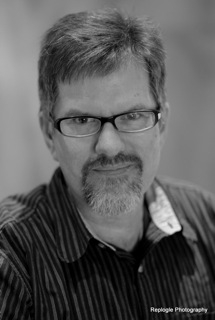By Shane Bennett
In his Locksley Hall poem Lord Tennyson famously asserts, “In the spring a young man’s fancy lightly turns to thoughts of love.” I contend that a young man’s fancy can’t “turn to thoughts of love” in the spring, since they haven’t really ever turned away from such thoughts. Turns out, “thoughts of love” pretty much form a core in the psyche of most young men. And old ones. And women as well. Even those men and women who’ve dedicated their lives to God’s purposes outside of their home cultures. (See our previous article, Sex and Dating on the Mission Field!)
Most of us, regardless of our vocation, are subject to a deep and emphatic need to connect – connect to family, friends, God, and for a good number of us, a spouse.
Here’s how it might go: You have a sense that God wants to use you for his kingdom among a culturally distant people group. You decide you’d also like to marry someone. You start your search with a determination only to pick someone of the opposite gender, thereby cutting the global pool of candidates in half. Further, you’d like someone roughly of your own culture, which, depending on the size of your people, may significantly cut down the list of candidates!
More names are cut from the list when you add that you desire to marry a fellow Christian (snip, snip…), who really lives the faith (spin snip), who also has a desire to work cross-culturally (snip, snip…) and finally, since you drank the Perspectives Kool-Aid, someone who is (snip, snip, SNIP!) headed toward unreached peoples! The result? Four guys qualify! You grew up with two of them in church. After your mom said you’d make a great couple, you swore to never be more than just friends. All this is well before you get to your other list with items, like eye color or depth of appreciation for Jane Austen novels.
What’s a girl (or guy!) to do? Here are three thoughts.
1. Be patient.
Ouch, I don’t even like typing that. It seems to be just a step or two above telling someone, “It’s okay; you’re married to Jesus.” But since almost all of us have to (or have had to) be patient in the spouse department, it’s really only a matter of degree.
2. Fish in the right pond.
If you’re designed by God to live a chunk of your life in a different culture and you’ve been asking him for a spouse, hang out in situations where others like you are likely to be. If that’s who you are, your dream guy is probably not spending the upcoming summer on the couch in his mom’s basement mastering his new Call of Duty game. He’s answering the call of duty in Calcutta, holding the hand of someone as they die of AIDS, or in Istanbul, drinking tea and playing backgammonh with Muslims.
Since this point could be derisively titled, “Short Term as Spouse Hunting,” let me add this caveat: Please don’t go on a mission trip just to find a spouse! I’m just saying to keep your eyes open. I think generally God would be pleased to link you up with someone who shares your vision. I know anecdotally that this worked for me: Ann and I fell in love one summer in Izmir, Turkey, all the while obeying our team rules not to date. (Almost totally obeying them. Really.)
3. Sign up at CalledTogether.
Not too long ago, if a couple found each other on line, they’d guard that secret like the recipe for KFC chicken. They would rather look their Baptist mom in the eye and confess they had met in a bar! Today, more and more good relationships start at an online dating site. Now technology and cultural acceptance has caught up with the dream that goes back at least as far as Roberta Winter, who famously advocated for a missionary matchmaking system.
Director of Operations Gerin St. Claire says CalledTogether.us is not just a dating site, but “a global community of singles pursuing transformational engagement outside the comfort zone of their own cultures, whether serving through NGOs, education, business, justice, media, or other means. If you are dedicating your life to making him known where he is not known now, CalledTogether seeks to connect you to other singles who share your specific burdens and calling, who can partner with you, in teams or through godly marriages and family.”
When I tell people about CalledTogether, I give them permission to laugh. It’s a new idea, and to many, it feels a little odd. But then I encourage them to think about it. In fact, I tell the men that CalledTogether should pay them to use the site. Not because they’re such studs (though they are!), but because it’s still true that more single women are willing to launch out to the ends of the earth. Single men of such valor are at a premium due to their scarcity.
Gerin adds, “Please consider who in your circle might benefit from joining this community, and pass the word along to them! The impact of this project will multiply as it grows, and our hope is that God will use it to send many new families to the nations, with hearts and callings aligned.”
To encourage you to sign up and invite your friends to, Gerin is offering a discount for Missions Catalyst readers. Drop in “2014MC” when you sign up to get your first three months for only a US$1/month. After that the price goes up to US$5.
» Read more about CalledTogether in articles from Christianity Today and NPR.


